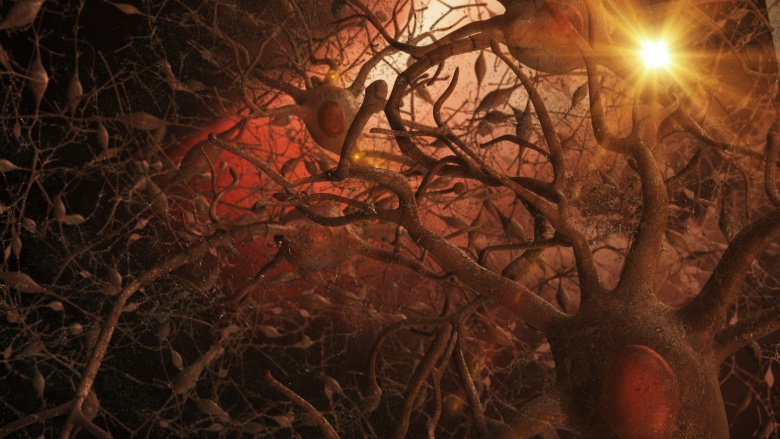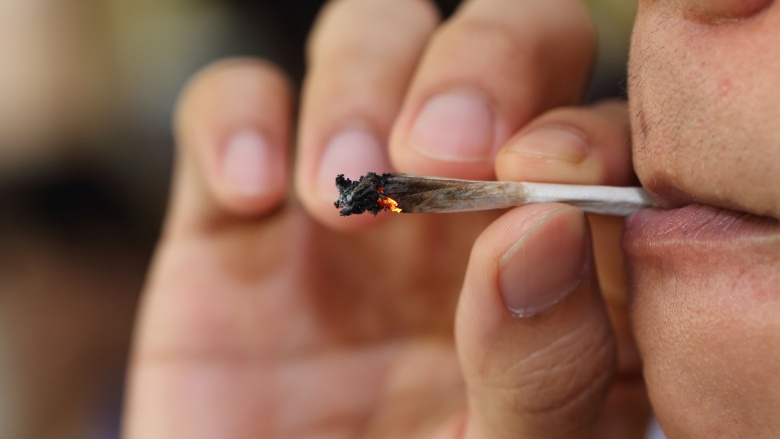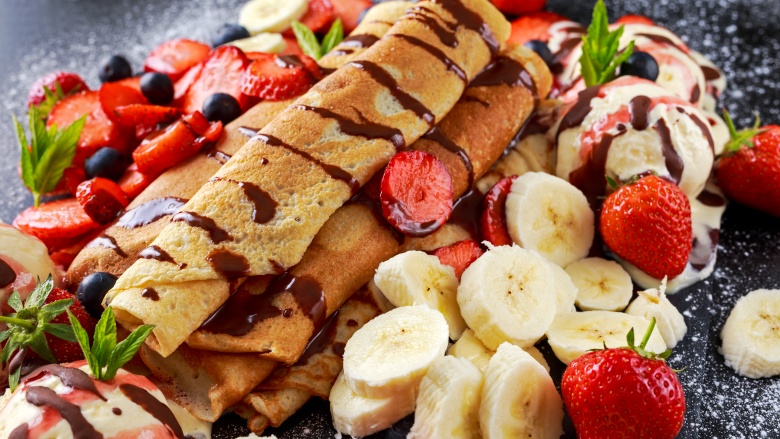What Really Happens To Your Body When You Smoke Marijuana
As marijuana legalization continues its slow, but inevitable, success at the state level, now seems as good a time as any to arm oneself with knowledge of exactly how the plant affects the body. There's actually a lot of science behind this drug, and we're learning more and more seemingly each day. Here's how weed works and what it does to your body and brain.
Endocannabinoids and you
The first step to understanding marijuana's effect is learning just enough about endocannabinoids to sound smart when you explain to your family that smoking a bowl before Thanksgiving dinner was actually good for you, and not merely a way to medicate yourself until you're numb from their inevitable judgement. Of course, both things can be true. But, back to the science stuff.
Endocannabinoids are the chemical messengers that tell your body to get its various processes moving, and when to stop. They're instrumental in maintaining homeostasis and play a role in a bunch of vital functions in the body, such as sleep, hunger, immune function, mood, memory, and more. They've been found in mammals, reptiles, plants, and other species. Since such cannabinoids, thus named after being first discovered in the cannabis plant, already exist in us, it's perfectly reasonable to spark up a fatty on occasion.
It's actually a bad idea to smoke it
But before we get ahead of ourselves, maybe smoking shouldn't be your primary form of ingesting mary jane. According to the American Lung Association, any form of smoke can be harmful to the lungs, regardless of the source. While a recent study shows that casual pot-smoking has not damaged user's lungs, longer-term smoking does show a very slight decline in lung function.
That's still more damage than any life-giving lung should suffer, so thankfully there are other ways to partake of the sweet leaf. One that is rising in popularity is edibles. Long gone are the days when pot brownies were the most adventurous culinary option for stoners. Now you can get just about anything "medicated," from gummy bears (which were just banned in Colorado) to whole cannabis-infused meals.
The science behind the munchies
Speaking of eating and weed, one side effect that nearly everyone who's smoked weed has experienced at least once, is the burning desire to suddenly become the MacGyver of cuisine. They'll concoct unheard-of food combinations, with sandwiches rivalling Dagwood's, all in an effort to eat everything in the kitchen. You might know this phenomenon as "the munchies," but why the munchies? Why does Snoop Dogg, despite weighing about as much as a beach ball, probably scarf down more noms than Garfield?
Believe it or not, science has the answer, because science is kind of the coolest. Scientists found evidence that THC, the psychoactive ingredient in cannabis, heightens the sense of smell. The scent of the food triggers a specific cannabinoid receptor, which in turn increases one's desire to eat it, partially due to scent and taste being connected. So next time you find yourself eating pickles dipped in Nutella and rolled with bacon after getting stoned, you'll know why
Pain management
Cannabis has been used for medicinal purposes for centuries, starting back in 2730 B.C., when Emperor Shen Neng would prescribe marijuana tea for all sorts of ailments. Later on, in the 18th century, an Irish doctor named William O'Shaughnessy found that marijuana helped alleviate pain. He's now credited with popularizing weed for medicinal use in America
There's mounting evidence that cannabis is effective for pain management, and may even be a safer alternative to highly addictive, and often fatal, opioids. Unfortunately, due to the plant still being illegal on the federal level, there's a severe shortage of testing, which ultimately impacts those who need the plant for medicinal purposes. It also means that study you may have seen on social media, about where you get to be a real-life Cheech & Chong and make $3000 a week, is totally bogus.
Regardless, there are still studies out there, like the one the University of California, San Francisco conducted. UCSF found that adding marijuana to an opiate-only treatment for those living with chronic pain is not only effective, but could also allow doctors to reduce the amount of opioids prescribed. In addition, a University of Michigan study found that patients who used cannabis in lieu of opioids reported a 64% decrease in the use of opiates to manage their pain.
Interestingly, weed helps patients suffering from pain differently than you may expect, by increasing the person's tolerance for said pain, versus actually killing it. Coincidentally, college kids have been unofficially studying how cannabis makes the pain of attending college more tolerable for decades.
How it stops anxiety, and how it also might increase it
Weed has always had a reputation for chilling people out, but as it turns out, there's actual science to support that cannabis does, in fact, help people suffering from anxiety to just breathe.
A group of researchers at Vanderbilt University discovered there were cannabinoid receptors in the amygdala, that part of the brain made semi-famous thanks to Adam Sandler's The Waterboy. The amygdala regulates anxiety, and once someone's severely distressed and/or suffering from anxiety, the body reduces its natural endocannabinoid production, which in turn increases one's anxiety level. Along comes the stickiest of the icky, laden with all that magical THC and providing the cannabinoids that the body needs to regulate all those awful, anxious feelings.
While this all sounds great — and to be frank, kind of is — the old adage about too much of a good thing making you sick is somewhat applicable here. Studies have also shown that chronic, daily marijuana use can actually inhibit cannabinoid receptors and end up causing anxiety, which is not only the opposite of its purpose, but it's also a major buzzkill for everyone else who's enjoying their high.
Conclusion
While the pros almost certainly outweigh the cons when it comes to using weed for anxiety, or really for any other reason (medicinal or otherwise), the key to an enjoyable experience is moderation. Since testing is minimal, it's really anyone's guess as to what the ideal dosage is. Edibles are known to be more potent and impacts users differently than smoking or vaping, and different strains affect people differently. Basically, if you're going to partake — which, obviously, you would only be doing through the most legal means possible — going to a dispensary with a knowledgeable staff is your best bet.






